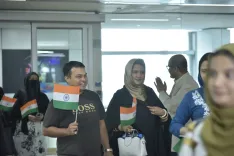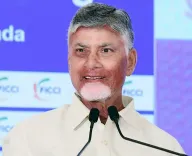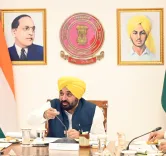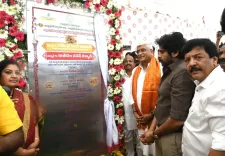Did Shubhanshu Shukla Make History by Entering the Space Station?
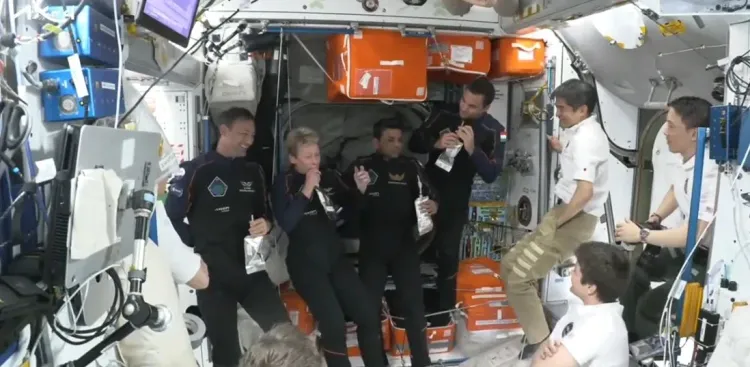
Synopsis
Key Takeaways
- Shubhanshu Shukla is the first Indian to enter the ISS.
- His mission signifies India's growth in space technology.
- He will conduct critical research on food and nutrition in space.
- The mission enhances India's involvement in global space exploration.
- Shukla's journey is a boost for the upcoming Gaganyaan mission.
New Delhi, June 26 (NationPress) In an extraordinary advancement for India, IAF Group Captain Shubhanshu Shukla made history on Thursday by being the first individual from the nation to step onto the International Space Station (ISS).
After an extensive wait of 41 years, India now proudly has an astronaut in space. Born in Lucknow, Shukla becomes the second Indian to venture into space, following Rakesh Sharma, who journeyed in 1984.
Axiom Space announced on the social media platform X, “#Ax4 have entered the Space_Station,” just over an hour after the successful docking.
The mission-4, carrying Shukla and three other astronauts from the United States, Poland, and Hungary, docked at the Harmony module’s space-facing port at 6:30 a.m. ET (4:00 pm IST).
The SpaceX Dragon spacecraft, named ‘Grace’, is transporting Ax-4 Commander Peggy Whitson, Pilot Shubhanshu Shukla, and Mission Specialists Sławosz Uznański-Wiśniewski and Tibor Kapu.
According to NASA, the crew has “emerged from the Dragon spacecraft and are getting their first look at their home in low Earth orbit.”
Upon arrival at the orbital station, Shukla and his team were greeted by seven crew members of Expedition 73, including Anne McClain, Nichole Ayers, Kirill Peskov, Jonny Kim, Sergey Ryzhikov, Alexey Zubritsky, and Takuya Onishi.
“The world watches as India scales the skies...” remarked Dr. Jitendra Singh, Union Minister of State (Independent Charge) for Science and Technology, in a post on social media.
“It’s heartening to see how India’s scientific ecosystem is quietly and confidently crafting its own narrative in space research. With #ShubhanshuShukla on board, we are not merely a passenger in this journey but a partner, participant, and a future-ready team. His presence will significantly enhance our #Gaganyaan mission, enriching our planning and long-duration spaceflight objectives,” added Dr. S Somanath, former ISRO chief.
The crew launched to the ISS at 2:31 a.m. EDT (12 noon IST) from Launch Complex 39A at NASA’s Kennedy Space Centre in Florida, aboard a new SpaceX Dragon spacecraft on the company’s Falcon 9 rocket.
“Hello everyone, namaskar from space. I am thrilled to be here with my fellow astronauts. Wow, what a ride it was. When I was sitting in the capsule on the launchpad, the only thought in my mind was: let’s just go,” shared Group Captain Shukla.
“The ride started with an incredible push against the seat, and then suddenly, nothing. You are floating in a vacuum,” he recounted while describing his space journey.
“I am learning like a baby; how to walk and eat in space,” he added.
Previously, he mentioned that this mission “is the journey of India’s human space flight.”
Shukla has also brought along carrot halwa, moong dal halwa, and mango nectar to satisfy his cravings for home-cooked meals in space.
The Axiom-4 Mission signifies not only a scientific accomplishment but also a demonstration of India’s increasing prominence as a global technology leader. It strengthens the nation’s ability to spearhead space innovation, advance sustainability, and play a significant role in global missions.
Once aboard the ISS, Shukla will conduct groundbreaking experiments concerning food and space nutrition.
This research will explore the effects of microgravity and space radiation on edible microalgae—an incredibly nutritious food source for future space explorations. The experiment aims to assess vital growth parameters and analyze transcriptomic, proteomic, and metabolomic variations among different algal species in space versus their behavior on Earth.


